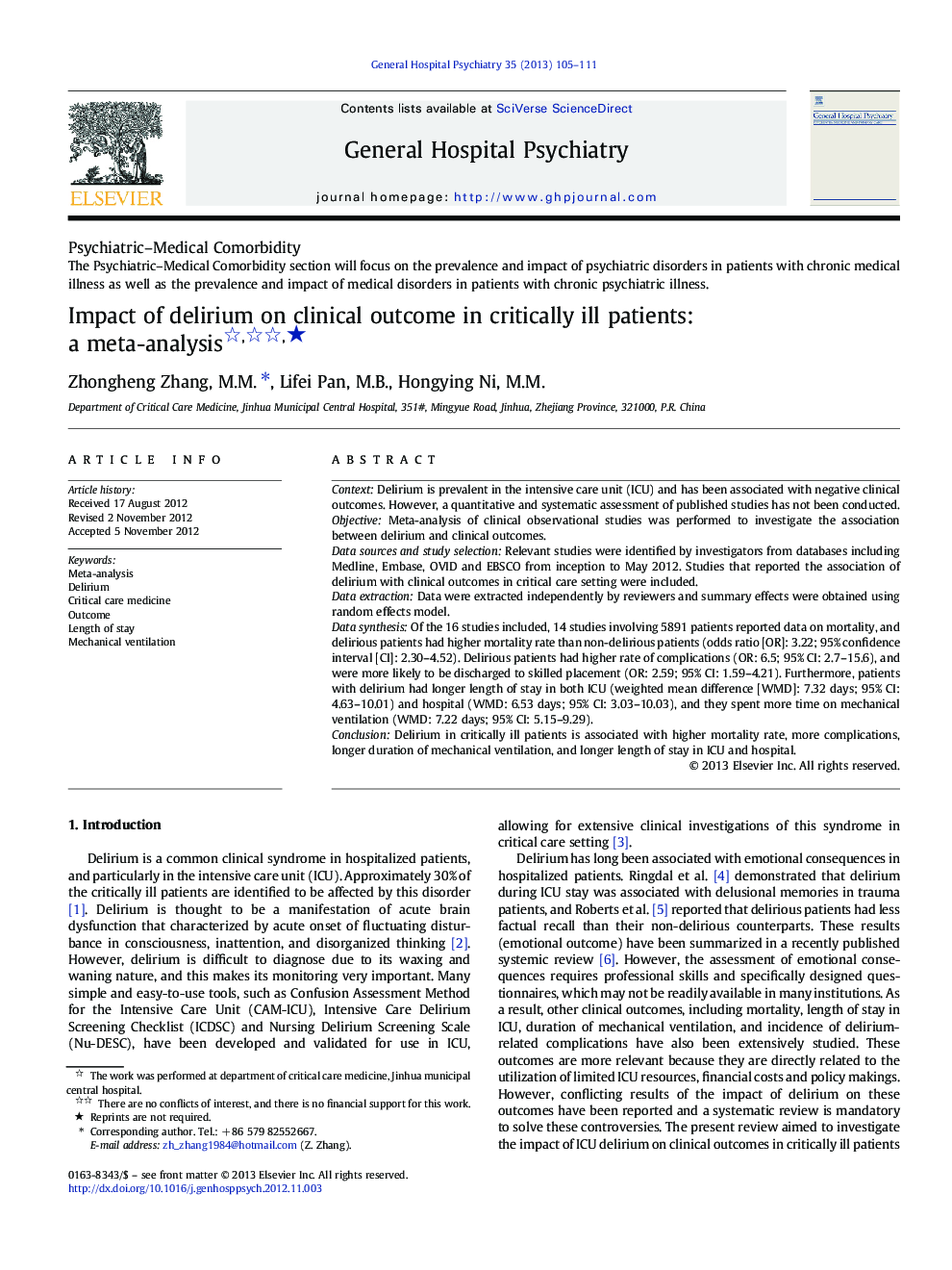| Article ID | Journal | Published Year | Pages | File Type |
|---|---|---|---|---|
| 3237779 | General Hospital Psychiatry | 2013 | 7 Pages |
ContextDelirium is prevalent in the intensive care unit (ICU) and has been associated with negative clinical outcomes. However, a quantitative and systematic assessment of published studies has not been conducted.ObjectiveMeta-analysis of clinical observational studies was performed to investigate the association between delirium and clinical outcomes.Data sources and study selectionRelevant studies were identified by investigators from databases including Medline, Embase, OVID and EBSCO from inception to May 2012. Studies that reported the association of delirium with clinical outcomes in critical care setting were included.Data extractionData were extracted independently by reviewers and summary effects were obtained using random effects model.Data synthesisOf the 16 studies included, 14 studies involving 5891 patients reported data on mortality, and delirious patients had higher mortality rate than non-delirious patients (odds ratio [OR]: 3.22; 95% confidence interval [CI]: 2.30–4.52). Delirious patients had higher rate of complications (OR: 6.5; 95% CI: 2.7–15.6), and were more likely to be discharged to skilled placement (OR: 2.59; 95% CI: 1.59–4.21). Furthermore, patients with delirium had longer length of stay in both ICU (weighted mean difference [WMD]: 7.32 days; 95% CI: 4.63–10.01) and hospital (WMD: 6.53 days; 95% CI: 3.03–10.03), and they spent more time on mechanical ventilation (WMD: 7.22 days; 95% CI: 5.15–9.29).ConclusionDelirium in critically ill patients is associated with higher mortality rate, more complications, longer duration of mechanical ventilation, and longer length of stay in ICU and hospital.
